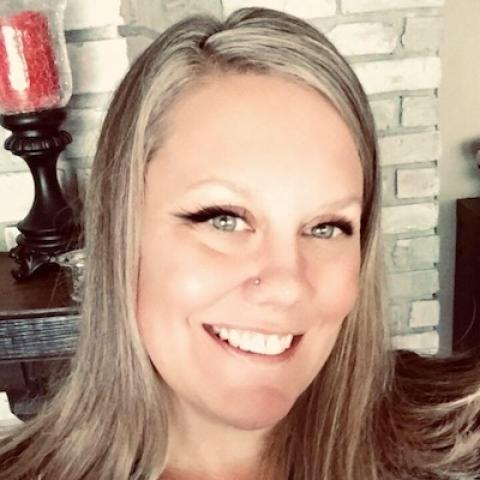Individualized studies track
Online applied child and adolescent development MABuild a foundation in child and adolescent development theory and practice to jumpstart a career working with children, youth, or families. In the individualized studies track, you’ll take core courses in child development and round out your degree with elective courses that align with your professional goals.
2026 admissions update
We are not accepting applications to the Individualized Studies track for the 2026-27 academic year.
Find what drives you - join us!
Build an academic foundation in developmental science and statistical methods.
Learn about the advantages and challenges of applying developmental science in different settings.
Define your own specialization by choosing courses that best align with your career goals.
We're driven to make a difference
Quote from Erin Gorski

I learned a vast amount of skills within my field experience, as well as rich knowledge within my MA studies, that I will carry with me throughout the rest of my professional career as I train the next generation of early childhood educators.
About this program
Core coursework
Take foundational courses in child and adolescent development:
- CPSY 5301: Advanced Developmental Psychology
- CPSY 5302: Cognitive and Biological Development
- CPSY 5303: Social and Emotional Development
- CPSY 5304: Research Methods in Applied Child and Adolescent Development
- CPSY 5306: Ethics and Professionalism in Applied Child and Adolescent Development
- EPSY 5261: Introductory Statistical Methods
Track coursework
In addition to the program’s core courses, you'll take 12 credits of electives or a minor selected from the other MA in applied child and adolescent development tracks or existing courses at the U of M. Examples include:
- public policy
- public health
- business
- early education
Careers
Knowledge of child and adolescent development will help you across a wide range of careers. Start or advance your career in a profession that intersects with child development and become a leader in your field.
Fields may include:
- law or juvenile justice
- child welfare
- education
- the arts
- advocacy or policy
- non-profit management
- pediatric nursing
- parent education
How to apply
Admissions requirements
If admitted, you'll start the program in the summer semester. The summer semester begins in early June. View the University of Minnesota's academic calendar for specific summer session dates.
We invite applications to our online MA program every year. You’re eligible to apply if you’ve completed:
- a bachelor’s degree or equivalent, earned prior to the summer start of the MA program. Preferred GPA: 3.00.
- at least one psychology course (lifespan, child, or developmental psychology preferred) or human development course, grade B or higher. If you're a student at the University of Minnesota (U of M), we encourage you to take CPSY 2301: Intro to Developmental Psychology.
There are additional admissions prerequisites for the child life track. Please visit Application instructions-child life for details.
Application
Review application instructions before beginning your application. To apply for our program, submit all materials electronically through the University’s online application system. Please don't submit materials via mail. We can't review your application until you submit all of the materials listed.
Test scores
We do not require GRE scores.
Information for international students
- English Language test scores (TOEFL): For students whose first language is not English, the Test of English as a Foreign Language (TOEFL) is required. The exception is for non-native English speakers who completed their undergraduate degree in an English-speaking country within the last five years. For the TOEFL, we require a score of 79 or above, with section scores of 21 on writing and 19 on reading. We must have an official copy of your scores on file. Send test scores to institution code 6874. View the U of M’s TOEFL score guidelines and expectations.
- Visas: This program is designed to be completed entirely in your home country. This program does not provide visas to come to the United States to study or complete internship requirements.
For any questions, please contact icdapply@umn.edu.
Tuition and funding
Students who take all their courses online qualify for the Minnesota resident tuition rate. Tuition for our MA program follows the University’s general resident graduate tuition rates. Full-time enrollment is 6 to 14 credits per semester. Each track in our MA program has its own course and credit requirements. To review the credit requirements for each track, view the sample degree timeline on each track page.
Additional resources
Individualized studies track application instructions
Deadline: Feb. 15
Before you begin the online application, gather the following materials:
- Unofficial transcripts: You must submit an unofficial transcript or academic record for each institution you’ve attended.
- Resume or CV (do not fill out the employment section in the application, you'll be asked to upload a resume/VS later in the application.)
- Personal statement: Address our personal statement prompts in your statement.
- Diversity statement: Enrolling and graduating a diverse student body is central to the U of M’s mission. Complete a one-page statement that identifies the distinctive qualities, characteristics, and life experiences you would contribute to your graduate program. Include examples that address your contribution to the diversity of the student body and illustrate your motivation to succeed. Please do not exceed one page in length.
- Three letters of recommendation: Identify and get contact information for three people who will serve as your recommenders. Share our letter of recommendation prompts with them. We suggest that you seek recommendations from the following:
- College instructor, advisor, or mentor
- Employer
- Another academic reference or, if that’s not possible, a personal reference from someone who has known you for five years or longer but is not a family member
- Application Fee: $75 ($95 for international applicants). Must be paid online with credit card.
Questions?
Email our admissions staff at icdapply@umn.edu.
Are you interested in taking a graduate course but aren't a student at the University of Minnesota? Visit OneStop Student Services to learn more about how to register.